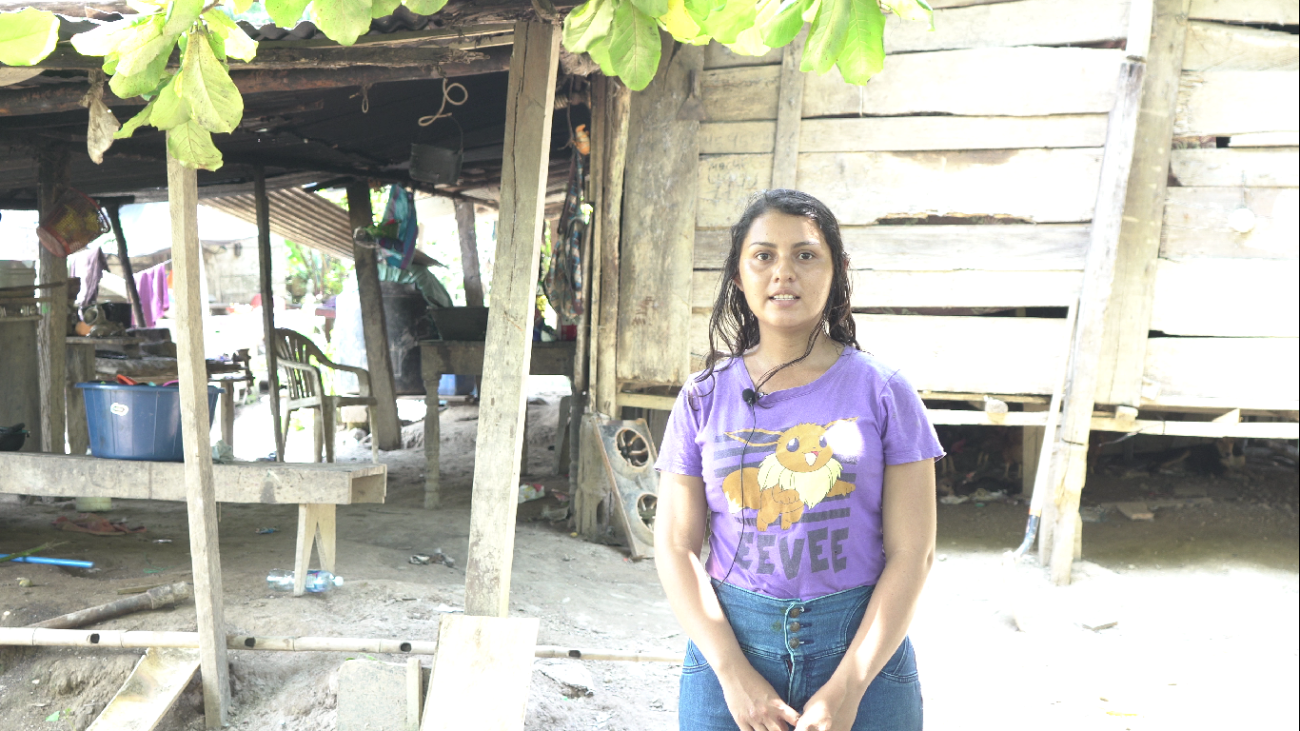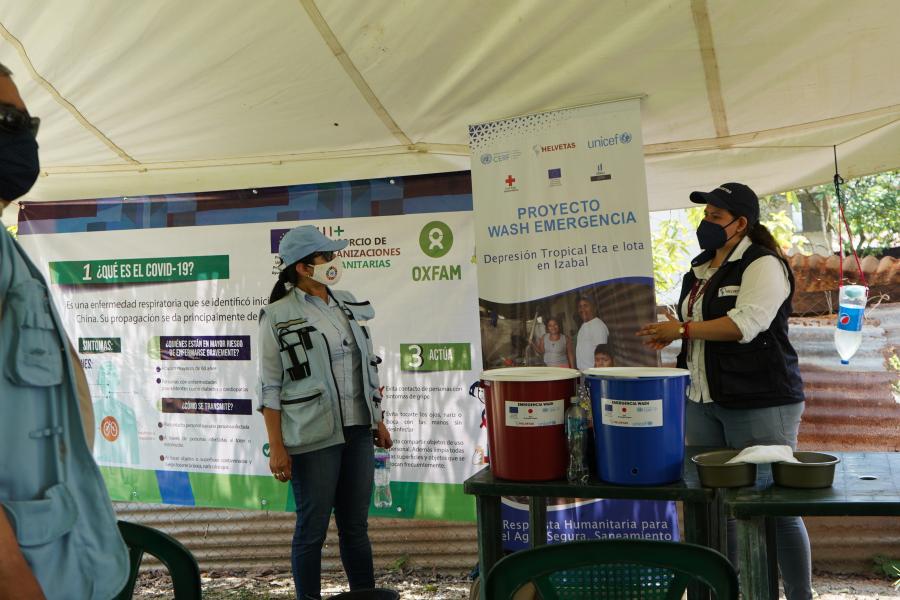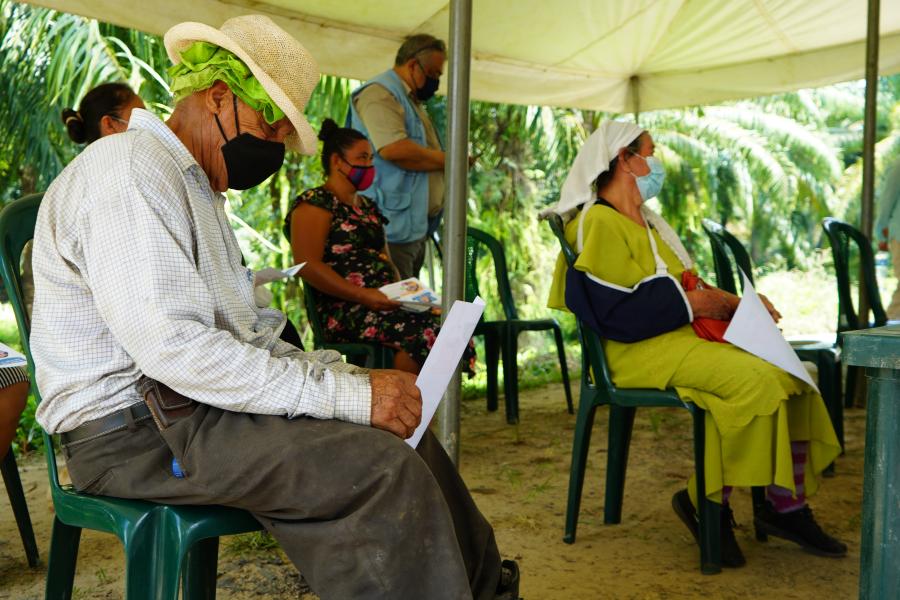Rebuilding lives

With the arrival of storms Eta and Iota, Silvia was emergency evacuated along with her family, abandoning her home and part of her animals.
In 2020, tropical storms Eta and Iota affected Guatemala and other Central American countries, causing floods and disasters with their passage. Among the departments that suffered the most damage in Guatemala, is Izabal, where the damage was of great magnitude, for example: in the small village of El Sesteadero, near the Motagua river, lives Silvia Flores, a community leader, a member of Community Development Councils (COCODE, by its acronym in Spanish), who shares her experience with us. She, like many neighbors, has had to rebuild her home after the tragedy.
Silvia Flores, she is 22 years old, has lived in the small village of El Sesteadero for as long as she can remember, she arrived when she was only one year old. The reason her family left her old home was also due to a tropical storm. Silvia reports that although El Sesteadero also represented a risk area, they had not had a serious problem since Tropical Storm Agatha, in 2010. However, she emphasizes that the damage caused by storms Eta and Iota was on a larger scale, affecting all community.
Silvia, as member of a COCODE, comments that she was granted the position of secretary and constantly appreciates the fact that she is taken into account in training events with more young people. However, what motivated her to get involved in the development field was her desire to be able to help: “one gets involved in order to help the community and be aware of any disaster; and for the satisfaction of knowing that you are doing something for others.”
With the arrival of storms Eta and Iota, Silvia was emergency evacuated along with her family, abandoning her home and part of her animals. “Kind-hearted people came to evacuate us and the animals in cars, but even so, many drowned”, “is what is most missed”, says Silvia, with a look of nostalgia, “to see the green plantations and our farm full of animals.” Families from all over the community lost their crops and had to witness how much of their animals were swept away by water currents and eventually drowned. In this way, they saw not only their homes fall, but also their main sources of income.
Before the storm, Silvia and her family, made up of her mother and her 17-year-old brother, were engaged in planting bananas, corn and beans, enjoying the income generated by their family farm. “We started sowing again after the storms, but some harvests take 8 or 9 months, so our family finances were seriously affected,” she says.

By radios they began to warn about the danger of the situation, and the municipality made available vehicles for evacuation. Vehicles loaded fast as the shelters.
It was a situation that filled the affected people with uncertainty; however, the solidarity shown by the country and different institutions; In addition to the actions carried out by the United Nations System in support of the communities, they created feelings of hope and support that were required at the time. Silvia expresses that the community is grateful to the United Nations, and to all the people and institutions that have given them help and have not abandoned them in the process of rebuilding their homes and community.
The second moment of impact for Silvia was when conditions allowed her to leave the shelter she was in and return to her home, since she did not know what to expect or what the final magnitude of the damage was. “When we returned to our community there was a lot of mud; many houses made of wood were damaged by humidity and termites; Furthermore, the plantain, corn and bean crops were completely destroyed,” Silvia added, while she emphasized that it had been a rather tragic experience.
During this process, the donation of cleaning supplies and food that the community received from all over the country was valuable and important. As well as help in the reconstruction of houses and places of basic services. Activities, in which the United Nations has collaborated arduously, visiting the community, where Children's Refuge Association and other institutions are neighbouring. This, Silvia affirms, while she touched her heart, “our community is a place where aid almost did not arrive and it was very little known because entry is very difficult and the United Nations came with other institutions so that they could get to know the community and could help us. That is something that is valued and appreciated a lot.”
Silvia and the community have shown a good attitude of resilience, since the losses suffered for many people represented the work of their entire lives. And beyond rebuilding their homes, they have had to rebuild their lives. However, they have not been alone in this process. The United Nations and the Guatemalan population continue to join forces to support the El Sesteadero small village and all affected communities, leaving no one behind. Silvia affirms “after this, we all became very close”.

Translated by: Jackeline Lemus
University intern - UMG




